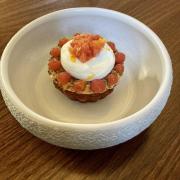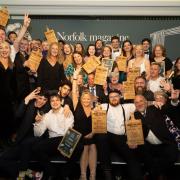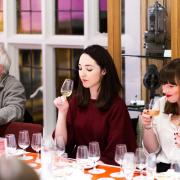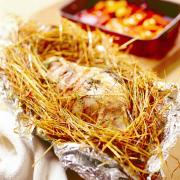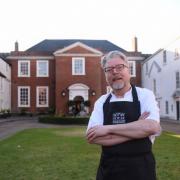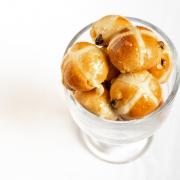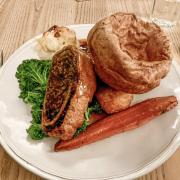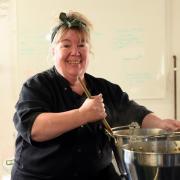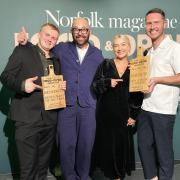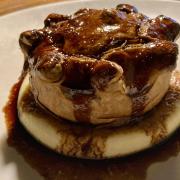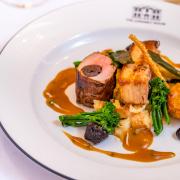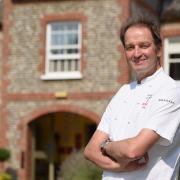We visit a micro-dairy to find out how one family solved the problem of never having enough milk and adopted an old-fashioned approach to farming

There are few scenes more idyllic. I am standing in a meadow on a baking hot day, surrounded by a herd of Jersey cows, their tails swishing, long blueish tongues investigating my arms as they blink those Barbie doll lashes. Adorable calves are suckling from their mothers or lying in the long grass.
These are Rebecca and Stuart Mayhew’s animals, at Old Hall Farm Dairy in Woodton. Originally pig farmers, the Mayhews never intended to have a dairy. It was on a family holiday to a friend’s dairy unit in Scotland in 2016 that they met a Jersey herd and it was love at first sight.
Their first cow, Freya, was meant to solve a problem for the family, as mother of two Rebecca explains, “We never had any milk in the house, even if it seemed that I’d just been to the shop. So having our own cow seemed like the perfect solution.” Soon, friends and family were asking for the milk, realising it was entirely different to supermarket versions.
Rebecca says: “Jersey milk is known to be the best milk, but we offer raw, unpasteurised milk, which means it is packed with probiotics, easier to digest, contains beneficial enzymes and tastes fantastic. We also don’t homogenise our milk – which is a standard commercial process that makes the fat particles too easily absorbed into the blood stream, which isn’t healthy or natural for our bodies.”

Demand for an unadulterated, traditional product increased, and gradually Freya was joined by 16 other milk cows. The herd has now reached 64, which includes calves and beef animals.
Seeing calves at foot with their mothers is a rarity in the dairy industry. In mainstream dairies, the calves are taken from their mothers shortly after birth and the males are often shot. Females, heifers, are kept to be future milkers, but are nourished with lesser quality feed than their mother’s milk.
When Freya’s first calf, Bess, was born, Rebecca just couldn’t separate them. “It just didn’t feel right or fair,” she explains as we look at the happy calves nuzzling their mothers. “We tried milk-sharing instead, so we milked once a day and left plenty for Bess during the rest of the day. It worked really well and we could see how relaxed and healthy Freya was, so as the herd expanded we stuck with what works.”
The Mayhews have adopted an approach where animal welfare comes first, which results in high quality products with ethical credentials. It’s about celebrating heritage methods, but with the advantages of modern science.
Back when the technique of pasteurisation was developed by Louis Pasteur in 1864, it saved lives. Milk was an unstable product that, with long supply chains from country to city, could easily spoil and contain pathogens. Pasteurisation removes bad bacteria, but it also kills beneficial bacteria, which are known to be useful for gut health and the prevention of a wide variety of diseases.
Today, rapid cooling techniques, scrupulous hygiene and regular testing mean that the Mayhews can be confident their products are safe without pasteurisation. They have recently turned their attentions to raw butter and next, cheese-making will be on the agenda.
As Rebecca says: “We’re pretty busy now, but we are even more in love with this heritage breed. And we never run out of milk anymore.”
You can visit the farm shop at Old Hall Farm, meet the cows and try the raw milk, milkshakes, butter and other produce. oldhallfarm.co.uk
Kate Blincoe is the author of The No-Nonsense Guide to Green Parenting and a freelance writer.




